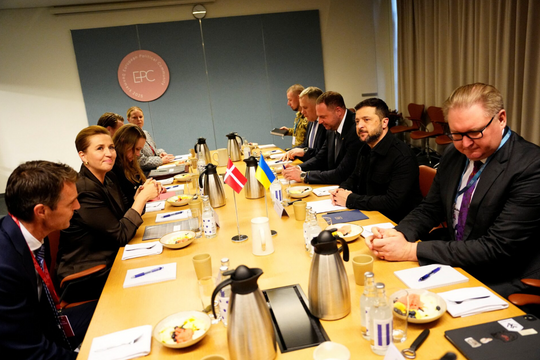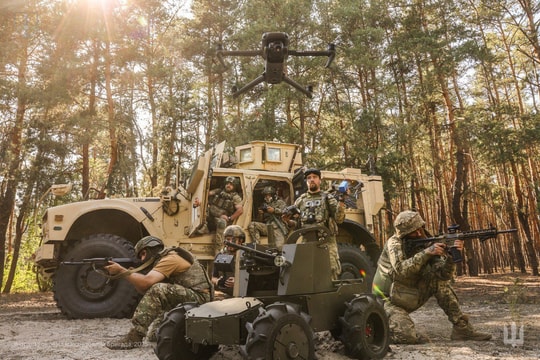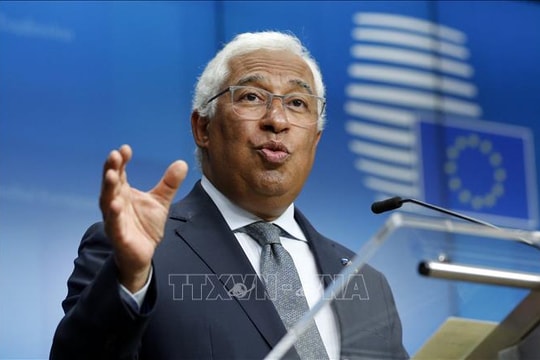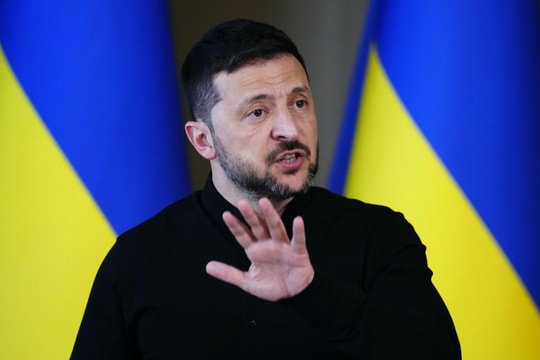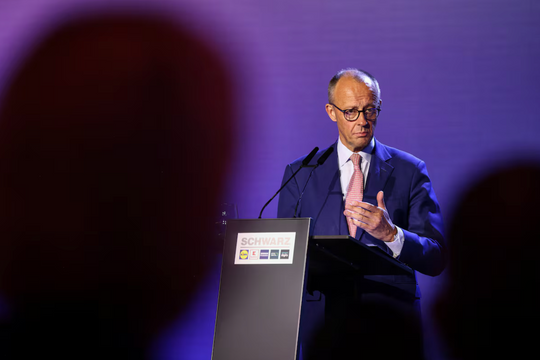Ukraine has little hope when Europe is also in trouble
Are Western leaders ready for a protracted war and will they continue to support Ukraine when they themselves are facing financial burdens?
War in Ukraine: Uniting or dividing Europe?
Six months since Russia launched its military campaign in Ukraine, the West has come together to support Ukraine and impose sanctions on Russia. However, that has not brought the war to a quick end. In fact, the fighting in Ukraine could even break Western unity as winter approaches and Europeans struggle with rising energy and food prices.
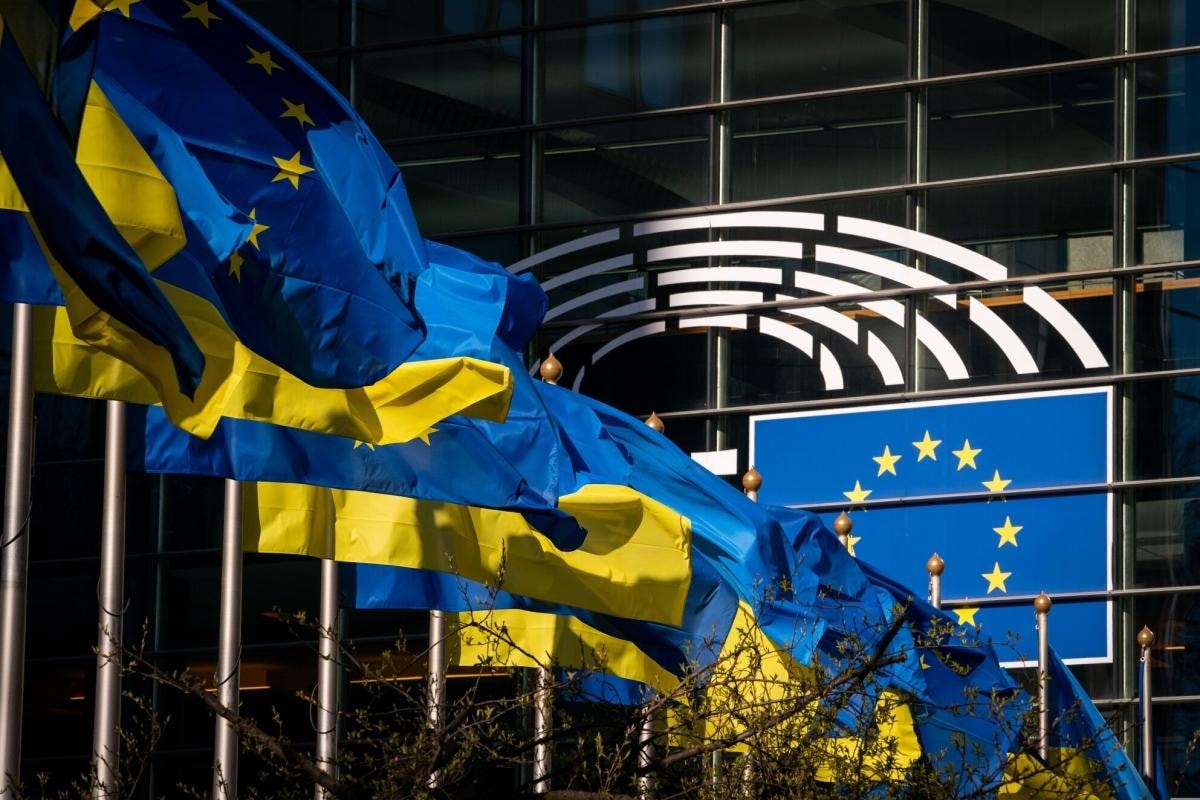 |
Illustration photo: Reuters |
The question is whether Western leaders are ready for a protracted war and will continue to support Ukraine when they themselves are facing financial burdens.
In the US and Europe, public opinion remains generally supportive of supporting Ukraine in its war with Russia, but this support may fade as the war drags on. In a May 2022 survey of 10 European countries, 42% of respondents said their governments pay too much attention to Ukraine instead of their own problems.
In Romania and Poland, the figure is more than 50%. Europeans also cite rising living costs and energy prices as their top concerns. In Germany, a July survey found support for a boycott of Russian gas, a key tool for pressuring the Kremlin, had fallen below a third, down about 44% from six weeks earlier.
Western governments have been frank about the difficulties they face ahead. While disposable incomes vary widely across countries, the cost of living for households in Europe is expected to rise by almost 7% in 2022, according to the International Monetary Fund (IMF).
With Russia tightening gas supplies, the situation is unlikely to improve and European consumers face a bleak winter. The UK is facing planned power cuts and the government must focus on supporting those most at risk. Income support for the poor is seen as a more effective measure than tax cuts and price controls. And in Germany, a country also struggling to cope with the risk of energy shortages in winter, opinion polls show that 50% of those asked support Ukraine giving up territory to Russia, according to The Guardian.
Economies in Eastern Europe are also facing their first signs of contraction after strong growth in early 2022, as the war in Ukraine hits companies and consumers.
Annual growth rates in Poland, Romania and Hungary remained steady in April-June, driven largely by a surge in consumer demand following the lifting of Covid-19 restrictions. However, the economies of Poland and Romania are expected to contract on a quarterly basis, and growth in Hungary is slowing.
Ahead of the difficult winter, Europe has agreed on a common plan for natural gas consumption, although there are still many differences, from Germany, far from the battlefield and most dependent on Russia for gas, to Spain and Portugal, which are less dependent on Russian gas, to Hungary, which has refused to comply with the terms of the Russian gas restrictions. The EU agreement has agreed to cut natural gas from Russia by 15% by next spring.
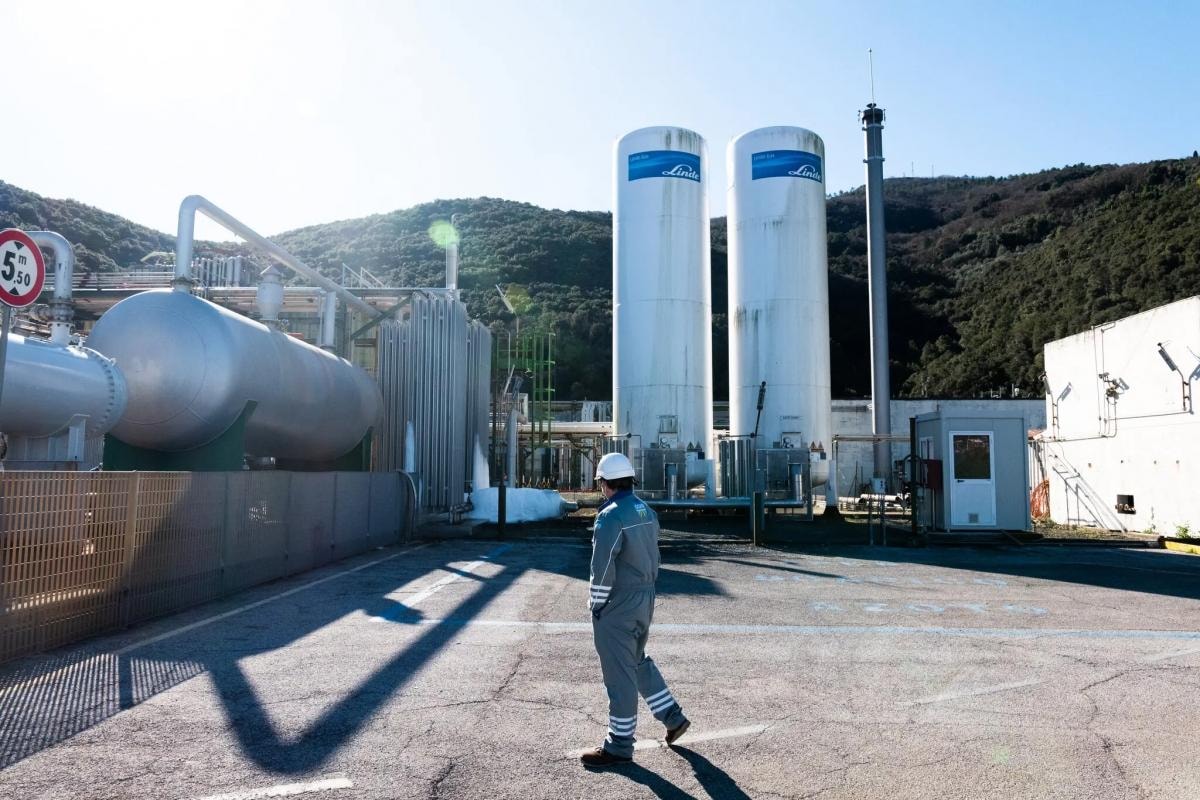
Europe concerned as Russia continues to cut gas
01/08/2022
Meanwhile, Europe is also looking for alternative gas sources from Nigeria, Algeria, Norway and Azerbaijan. The combination of new supplies and reduced gas consumption led an EU official to claim in early August that the EU could reduce its dependence on Russian gas from 40% to 20%. But the political challenge is: Can EU unity continue as economies shrink and will the spirit of sacrifice for Ukraine fade?
How long will Western support for Ukraine last?
Despite unprecedented Western sanctions, Russia has not changed its campaign goals, and despite Moscow's warnings, the West continues to supply weapons to Kiev.
The US pledged another $1 billion in military aid to Ukraine last week, bringing Washington's total to $9.8 billion. Britain's figure now exceeds £2.3 billion, while EU countries have also stepped up arms supplies to Ukraine. Without this support, Ukraine would be defeated.
To overcome the psychological fatigue of the prolonged war, Western leaders need to clarify their goals in Ukraine. While individual governments’ priorities may differ, they agree on some core objectives: protecting the leadership andUkraine's right to self-determination, holding Russia accountable for the war and avoiding a ceasefire that would leave Kiev vulnerable to further Russian attacks. At a minimum, Europe will maintain sanctions against Russia and continue to provide economic assistance to Ukraine in the coming months.
However, the Biden administration’s cautious moves to avoid direct confrontation with Russia at all costs mean that Russia will not win outright, but it will not lose outright either. This war will always simmer but will never reach a boiling point./.

